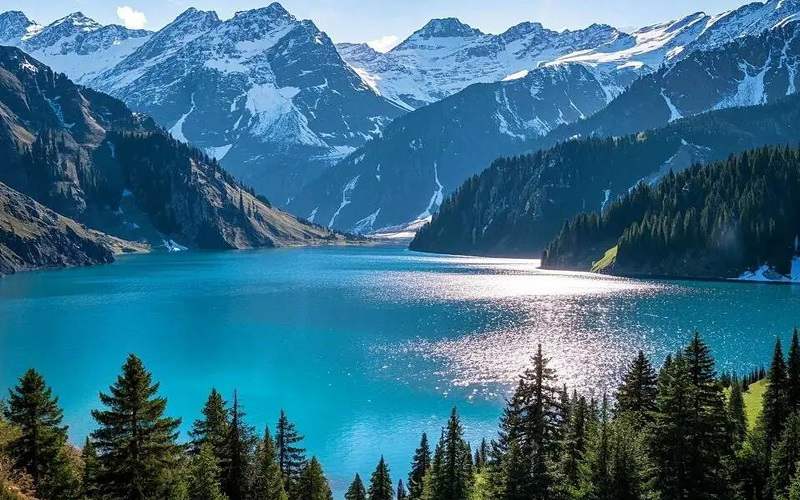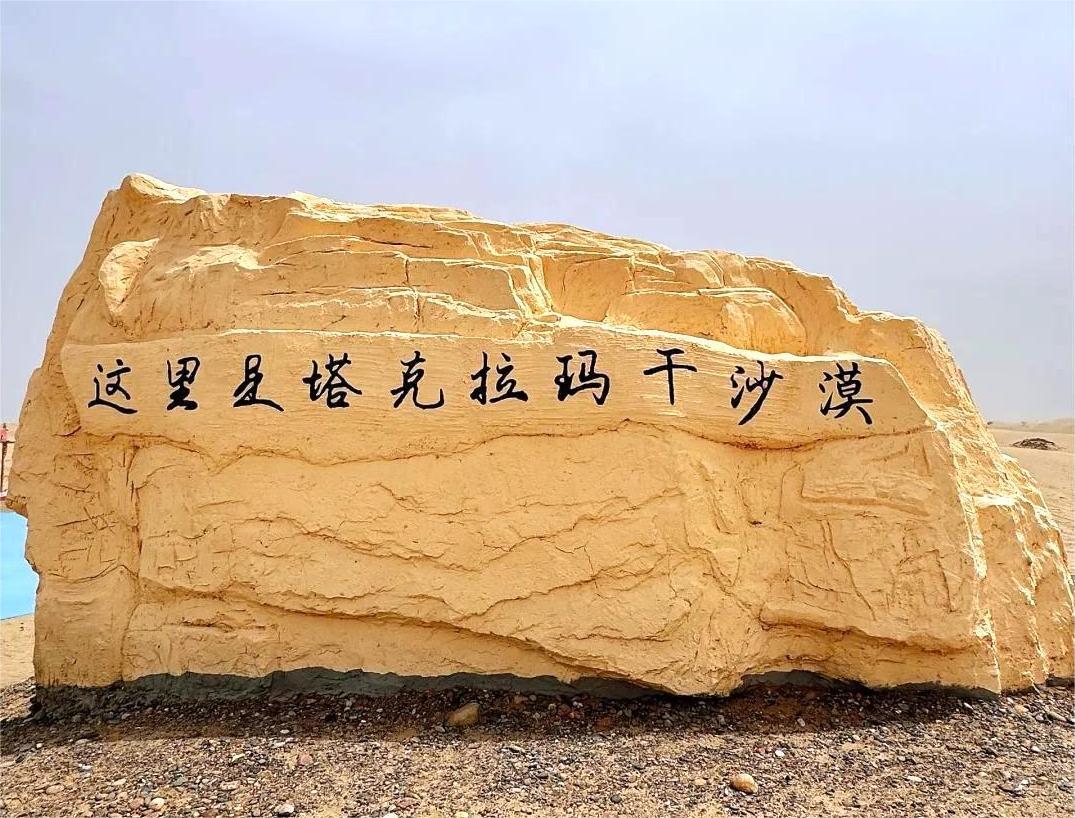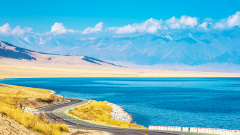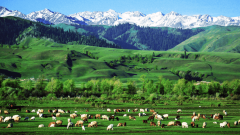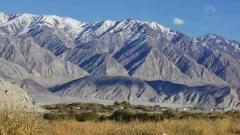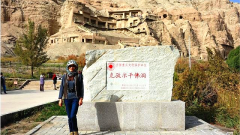When people think of Xinjiang, they often imagine the endless deserts of the Silk Road, majestic snow-capped mountains, or the bustling bazaars filled with spices and handicrafts. Yet beyond its iconic landscapes and history, Xinjiang is also one of the best destinations in China for relaxation and soul-healing travel. Whether you’re seeking a calm retreat in the mountains, a peaceful stroll along a quiet lake, or an immersive cultural experience far away from the stresses of modern life, Xinjiang offers it all.
In this guide, we will explore the many aspects that make Xinjiang a perfect place to relax—its landscapes, cultural traditions, local cuisine, and tranquil activities.
1. The Healing Power of Xinjiang’s Landscapes
One of the greatest reasons travelers come to Xinjiang is its incredible variety of landscapes, which provide a natural setting for relaxation and reflection.
Heavenly Lake (Tianchi)
Nestled in the Tianshan Mountains near Urumqi, Heavenly Lake is a high-altitude alpine lake surrounded by fir trees and snowy peaks. The peaceful water reflects the sky like a mirror, creating a tranquil environment ideal for meditation or simple quiet walks. Visitors often sit by the lakeside, breathing in the crisp mountain air, letting stress fade away.
Kanas Lake and Hemu Village
In northern Xinjiang, Kanas Lake is perhaps one of the most photogenic places in China. Its turquoise waters shift colors throughout the day, and the surrounding birch forests are especially calming during autumn, when golden leaves fall softly on the paths. Nearby Hemu Village, home to the Tuvan people, is a quiet retreat where traditional wooden cabins and grazing horses add to the idyllic charm. Spending a night here, away from city noise, feels like stepping into a storybook.
The Desert Silence of Taklamakan
For some, relaxation is found not in lush greenery but in the stillness of the desert. The Taklamakan Desert, one of the largest sandy deserts in the world, offers a unique kind of peace. Walking among the dunes, hearing only the whisper of the wind, provides an almost meditative experience. The desert’s vastness makes everyday worries seem small in comparison.
2. A Cultural Retreat: Traditions That Soothe the Soul
Xinjiang is home to many ethnic groups, including Uyghur, Kazakh, Hui, and Tajik peoples. Their cultural practices bring not only vibrancy but also opportunities for slow, mindful travel.
Uyghur Hospitality
Hospitality is central to Uyghur culture. Travelers who visit local homes are often welcomed with hot tea, naan bread, and fresh fruits. Sitting in a Uyghur courtyard shaded by grapevines, enjoying friendly conversation and homemade food, creates a feeling of warmth and belonging that relaxes both body and spirit.
Kazakh Yurts and Pastoral Life
In the grasslands of northern Xinjiang, Kazakh herders invite travelers into their yurts, traditional round tents made of felt and wood. Life here follows the rhythm of nature—waking with the sunrise, herding animals, and sharing simple meals by the fire. This lifestyle offers visitors a refreshing break from the fast-paced modern world.
Sacred Sites and Inner Peace
Xinjiang is also home to many religious and spiritual sites. From the Id Kah Mosque in Kashgar to Buddhist caves along the ancient Silk Road, these places provide quiet environments where travelers can reflect, pray, or simply enjoy the peace of centuries-old traditions.
3. Relaxation Through Food: A Culinary Journey
Food is another way Xinjiang helps travelers relax and feel at ease. The region’s cuisine is rich, hearty, and deeply satisfying.
-
Lamb Kebabs: Grilled over open flames, these skewers of seasoned lamb are simple yet comforting.
-
Hand-pulled Noodles (Lagman): Served with fresh vegetables and tender meat, this dish is both filling and soothing.
-
Pilaf (Polu): A rice dish cooked with carrots, onions, and lamb, offering warmth and nourishment after a long day of travel.
-
Fruits of Xinjiang: From Hami melons to grapes and pomegranates, Xinjiang’s fruits are world-famous for their sweetness. Eating fresh fruit under a grape trellis or in a quiet orchard is a relaxing experience in itself.
Meals in Xinjiang are not rushed affairs—they are occasions for gathering, storytelling, and connecting. Sharing food with locals is one of the most relaxing and memorable parts of visiting the region.
4. Activities for a Calming Journey
Xinjiang is vast and offers many opportunities for slow travel. Unlike cities where sightseeing feels rushed, here you can choose activities that allow you to connect deeply with the environment.
-
Leisurely Hiking: Trails around Kanas, Sayram Lake, and Tianshan Mountains provide easy hikes with panoramic views. These walks are perfect for travelers who want to move slowly and breathe in fresh air.
-
Horseback Riding in the Grasslands: A gentle ride through meadows or valleys offers both relaxation and a sense of connection with traditional nomadic life.
-
Hot Springs Retreat: Xinjiang has several natural hot springs, especially in Altay and Ili areas. Soaking in warm mineral water while gazing at mountains is one of the most rejuvenating experiences.
-
Photography as Meditation: The changing light across deserts, lakes, and mountains makes Xinjiang a paradise for photography. For many travelers, taking time to observe and capture these scenes becomes a calming form of mindfulness.
5. The Four Seasons of Relaxation
Different times of the year offer unique ways to enjoy Xinjiang’s relaxing atmosphere:
-
Spring: Flowers bloom across Ili Valley, especially apricot and lavender blossoms. The weather is mild, perfect for outdoor walks.
-
Summer: Escape the heat in cool mountain retreats like Kanas or Sayram Lake. Long days mean plenty of time to explore slowly.
-
Autumn: Perhaps the most beautiful season, with golden birch forests, colorful grasslands, and a harvest of fresh fruits.
-
Winter: Snow blankets Altay, turning it into a quiet wonderland. Ski resorts here provide both adventure and peaceful moments by the fireplace.
6. Practical Travel Tips for a Stress-Free Experience
To ensure your journey is as relaxing as possible, here are some practical suggestions:
-
Transportation: Xinjiang is large, so plan carefully. Trains and flights connect major cities, while private cars or local tours are recommended for remote areas.
-
Accommodation: Choose local guesthouses or boutique hotels to experience warmth and comfort. Yurt stays are excellent for a cultural immersion.
-
Health & Safety: Because of Xinjiang’s size and diverse climates, bring layers of clothing. Stay hydrated, especially in dry desert areas.
-
Pace Yourself: Don’t try to see everything in one trip. Xinjiang is vast; focusing on one region per visit allows for a more relaxed experience.
Conclusion: Xinjiang, Where Peace Meets Adventure
Xinjiang is more than just a travel destination—it’s a place where the soul can rest. From tranquil alpine lakes and golden autumn forests to the stillness of the desert and the warmth of local culture, every corner of Xinjiang invites travelers to slow down and rediscover balance.
Whether you’re sipping tea in a Uyghur courtyard, soaking in hot springs under the stars, or simply walking along the shores of Kanas Lake, Xinjiang offers moments of peace that linger long after the journey ends. In a world that often feels rushed and overwhelming, Xinjiang reminds us that true relaxation comes from connecting with nature, culture, and ourselves.
If you are seeking a destination that blends adventure with deep calm, Xinjiang is undoubtedly the perfect place to relax your body, refresh your mind, and uplift your spirit.



